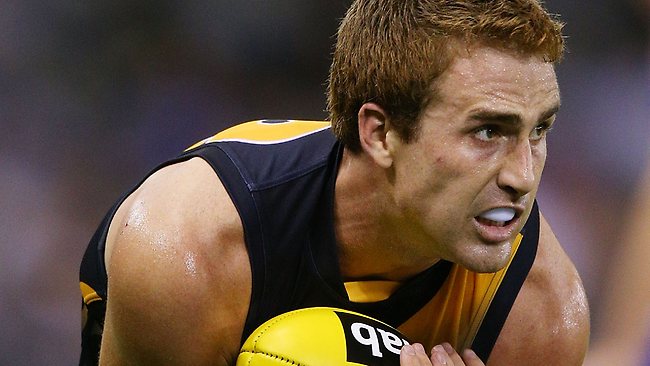Former Tiger Dan Jackson’s incredible journey from Richmond to leadership development manager at Adelaide Crows
He was a Tiger before they became premiership juggernauts but Daniel Jackson became a student of Richmond’s success and now Adelaide is benefiting.
AFL News
Don't miss out on the headlines from AFL News. Followed categories will be added to My News.
If Daniel Jackson succeeds in his role of Adelaide’s Leadership Development Manager, then he should almost work himself out of a job at the Crows.
“If we build out a good leadership development program and you develop great leaders,” Jackson told the Sunday Mail.
“Then they drive the culture and it self sustains because they also develop great young leaders.
“And then maybe I have done myself out of it and I only come in there on occasion to make sure the wheels are still turning, but they are driving it.
“That is how I envisaged success in this role within a way, but at the same time once that wheel is turning and the journey is moving forward (for the Crows) I don’t want to go anywhere, I want to be a part of it.”
Watch the 2021 Toyota AFL Premiership Season. Every match of every round Live on Kayo. New to Kayo? Try 14-Days Free Now >
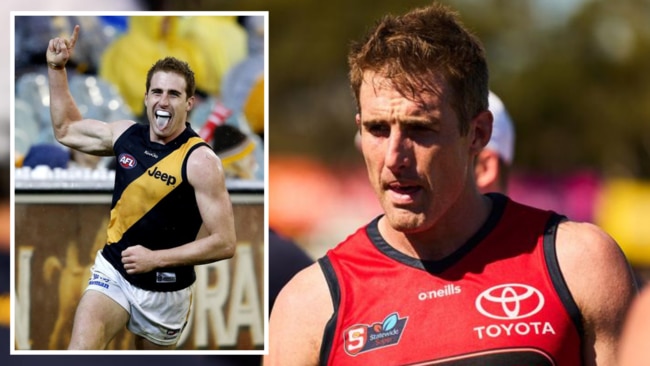
Given his experiences and insights into the vital, but extremely broad space, that is leadership and culture, the Crows must also be wanting the ex-Richmond best and fairest-winner to go nowhere for the time being.
Headhunted by ex-Crows chief executive Andrew Fagan while still living in London, Jackson came to Adelaide to fill the position of what was then titled Head of Leadership and Culture.
Created after Hawthorn-legend Jason Dunstall highlighted leadership and culture concerns in his widespread review of the Crows post-2019 season — identifying a culture of self-survival among players as Adelaide fell quickly from a Grand Final just two-years prior — Jackson came into a job that had ‘draft’ printed all over the description.
But, around 18 months into his stint at Adelaide, the ex-Tiger is seeing signs that this culture of self-survival that Dunstall was so concerned about is the thing of the past.
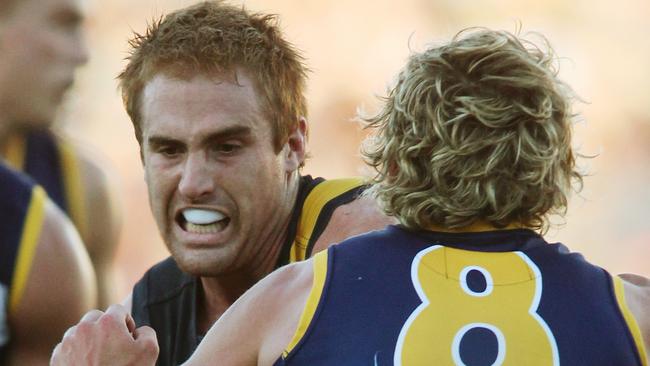
TIGER TIME
Jackson played 156 games for the Tigers from 2004 to 2014, and has since come back to study the change of culture at Richmond as his former club rose up to become one of the modern day great sides with three premierships in four years.
But his view of what makes a great culture and leaders has far more to it than just what happened at Punt Road.
“I guess everything that anyone does in life is based on their journey and a big portion of mine was 11 years in the AFL system with one club,” he said.
“It just happens that now that one club is at the heights of their powers and everyone wants to know and emulate what they are doing.
“And I’ve had to remind a few people that when I was there between 2003 and 2014 it was not at the same heights. It was very much at the other end of the level.
“But I think you learn your greatest lessons from your biggest hardships, so I saw what the struggles were day to day, week to week, year to year for a club that was going through a transition period.
“Whether that is a rebuild, whatever it might be I got to see that.”
THANKS, I’M OUT OF HERE
After retiring at just 28, because of injury, Jackson not only left the AFL bubble but Australia as well.
He lived in North America, working in and around collegiate sport and NHL clubs, before moving to London.
He devised life survival guides for English Premier League youngsters, worked with many from underprivileged backgrounds where knife crime was all too common in their lives.
“I was in North London once and as I was leaving this academy I was told just to be, mindful of one of the streets because there had been a stabbing in that street a few hours earlier and the police had cordoned it off,” he said.
“And the boys were just so nonchalant about it and I was like how are they so calm, but this happens in their lives all the time.
“And there I was trying to get a taxi to take me to the train station, which was only a few blocks away because I was too scared to walk.”
This was supplemented with a Masters in Performance Psychology from Edinburgh University, commuting from his London sharehouse to complete it.
And then, with all this deep knowledge of how different sports in other countries did things Jackson studied the cultural change at Richmond from 2016 to 2019.
“So all my beliefs are sort of centred around what great culture is, what great high performance is, what is great leadership – they didn’t necessarily change but I sort of found myself starting to see them through a different lens and I was able to shape my views to be a bit different,” he said.
“And then I got that benefit of what Richmond had done through my studies, and what that did, I had great admiration and respect for how they turned around the club from when I was there, which back then I couldn’t have probably articulated what they needed to change but they were able to discover that through their own reviews and they made changes and we have seen the success.
“A lot of people have looked at that and what it does is that it gives me great hope that can be done differently in sport.
“Because I have seen when they didn’t do it so well and now I have seen it when they have done things quite well, it has been different to what people have traditionally thought what great sports teams are about.
“So we are on our own path here but we are always open to and looking at what best practice is.”
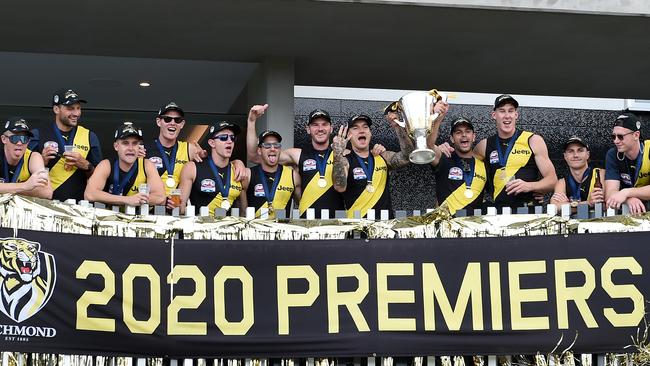
KEY TO CULTURE
Culture, to Jackson “is such a fickle word” because it and leadership encompasses so many things to different people.
But when asked about what is great culture to him, Jackson says they are built on a really strong foundation of “connection and caring”.
“So we spend a lot of time of really trying to build this understanding that we are all not the same, a lot of us do come from similar backgrounds in that we are elite in the sport that we play so there is that commonality there,” he said.
“But we all come from different walks of life and different families, socio-economic background and all that sort of stuff.
“So it is about helping those groups of different people and backgrounds find common ground to build strong connection because then I think it allows you to do all the things.
“Traditionally when we talk about great cultures we talk about having hard conversations and driving high standards of excellence, honesty with each other.
“So you get those things if you have a strong foundation of understanding and connection.
“So that is a big one for me, the other one is just that shared common purpose and Nicksy (senior coach) has been outstanding in driving that from day one.
“Rory Sloane wants to build a culture that is like a local footy club where we celebrate each other and our differences and welcome all.
“So for me the two pillars of great culture are in and around that authentic connection which is built around understanding and then having this shared purpose which leads us down the path together.”
PASSING ON EXPERIENCE
Last year because of Covid protocols, a lot of Jackson’s work was with the Crows senior leaders.
With things a little bit more open right now, he is doing a lot more with Adelaide’s youngsters – something he is passionate about after seeing the cutthroat nature of English soccer and Canadian ice hockey.
“What I took from my time up there was, in particularly the stuff with Premier League clubs (such as Manchester City) was that there is so much there we do well here in Austrlaia that they could learn from, particularly in the leadership and culture space.
“They have their own challenges, if you are the gaffer who has been given a role halfway through the season because the other guy has got the flick you have to win now.
“And culture is a journey, you can’t make short term decisions if you are trying to build a great long-term sustainable culture but that’s all they have to do there (is win) because the turnover is so high.
“So developing young people to become great young people is pushed down a lot in terms of priorities because these coaches just need to win.”
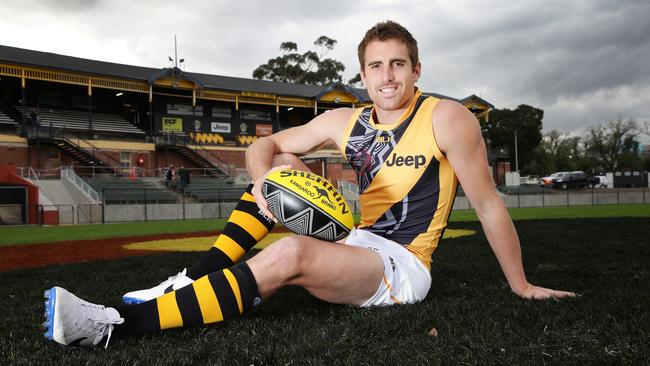
In addition to seeing how nonchalant the young players in North London were about a stabbing occurring near them, and a lack of consideration of how this would impact them Jackson saw how young kids and teenagers were at the mercy of such a ruthless system.
“I worked with a kid who was at Crystal Palace at eight-years-old, he had been promised the world and then at 12 or 13 he got a tap on the shoulder one day to say sorry mate we are cutting you, pack your bags,” Jackson said.
“And I remember asking him what was the hardest thing about that and he said at the time he didn’t actually realise but it was that they didn’t really let him go and say goodbye to his friends that he had spent the last four years with.
“That was so much at how they were looking at him through the lens of he’s a commodity, we are trying to develop him and we don’t see value him so see you later.
“I think our guys they get to be the beneficiaries of the Australian system, which is a lot more nurturing, a lot more balanced and a lot more about the long term development of the player and person.”
Jackson said he would love to go back to London one day to see if he could bring thinking from the Australian system into their consideration.
“But I wonder whether you can make those changes in those environments when it is incessant on winning,” he said.
PULLING THE BOOTS BACK ON
As a player Jackson would jet-off at every chance he could in his off-season.
He climbed Mount Kilimanjaro, went to Cambodia by himself to help people and took some fellow players with him to Rio de Janeiro to help kids in the favelas.
“We were getting tours into these unpacified favelas where police weren’t allowed in,” he said.
“So we were walking through these favelas and there are these guys just walking or driving around with AK-47s on their shoulders and we do our session we run, have lunch and escorted out.
“And these kids who are just 10, 12, 14-years-old … they are just used to seeing people with guns walking around or dealing drugs.”
He also ventured to Mount Everest’s base camp to raise money to rebuild schools in Nepal.
“Footy wasn’t the be all and end all for me,” he said.
“It was actually able to facilitate things that I was passionate about, doing the community work, helping young people on their journeys and what not and the harder I worked at footy the better results I could have outside of it so that was what motivated me.”
This led to Jackson being awarded the inaugural Jim Stynes Community and Leadership Award in 2012, and this curiosity and need to challenge himself had him putting boots back on this year at age 35 when the Crows SANFL side came calling.
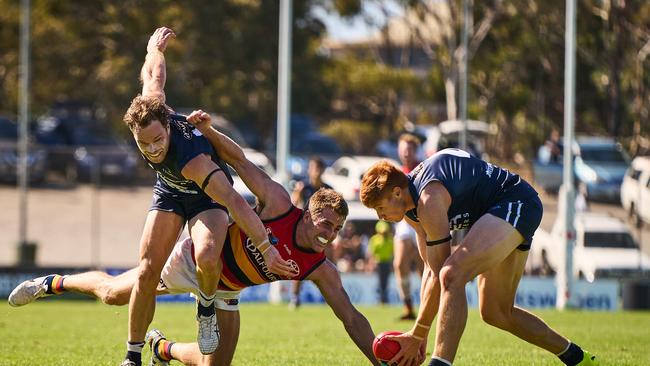
“My partner is from Adelaide but I wanted to make my own friendship group so I thought I would go out and play some footy for St Peter’s Old Collegiates,” he said.
“I went out to a couple of trainings and that was the intent, to play for fun.
“And then in pre-season we were so short of AFL-listed mids in a SANFL practice match and I jokingly put my hand up … and said I was happy to play a half.
“And I ended up playing a full game against Woodville on this 32C day.
“It was hot and hard and I was on a wing running up and down and we were losing stoppages so I said to Mick Godden I think I might more useful in the guts.
“So it has escalated from there and I played Round 1 and every other week when my body allows. I thought I would get fitter from it but it seems like every week my body allows.
“But it allows me to help out on the ground, I’m a bit of a jack-of-trades at the moment.”



